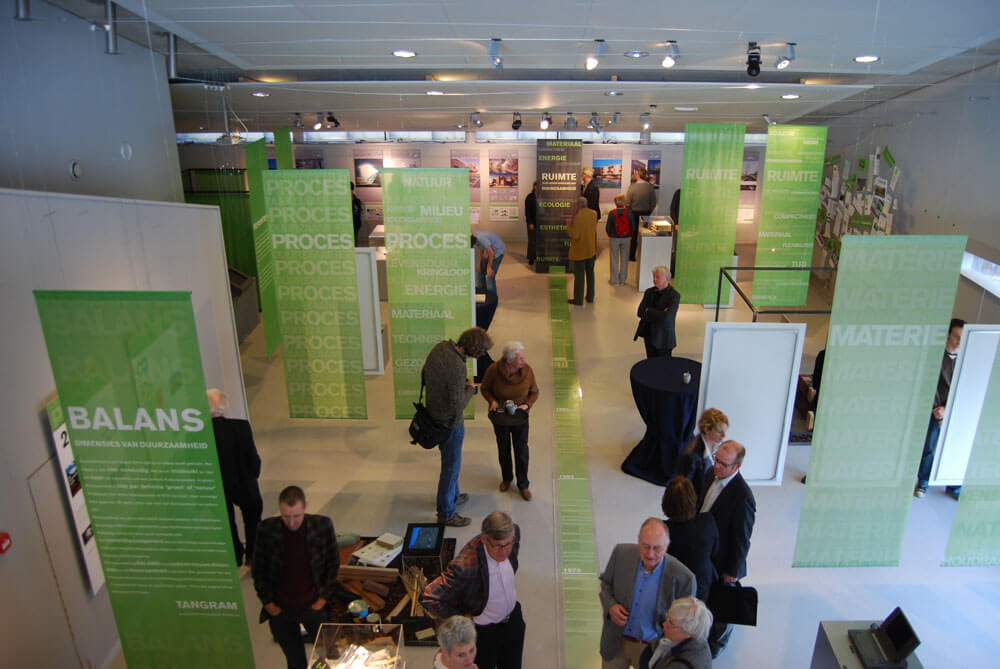Sustainability is a concept that is used both appropriately and inappropriately. It is indeed an ambiguous concept. It is misused and typically evokes a hype used to lend legitimacy to a product/building. Sustainability need not necessarily have to do with ‘green’ or ‘nature’ and has more meanings than just ‘energy-efficient’ or ‘CO2 neutral’; it can also transcend such aspects, something which certainly applies to the sustainability of buildings.
The sustainability of buildings is today measured incorrectly: the most energy-efficient CO2 neutral building can score very poorly on the sustainability ladder if it is standing at the wrong location.
The spatial component, missing from today’s measurement methods, ultimately determines the actual sustainability scores of buildings and the built-up environment. The exhibition BALANCE presents old and new dimensions of sustainability in the construction field. This goes beyond just a critical survey of the development of the concept, sustainability in different phases and conceptions – it represents an attempt further to advance the concept itself.
The exhibition was shown in several dutch cities ( Haarlem, Almere, Almelo, Utrecht , Tilburg) and an second version at the Roger Williams University in Bristol, R.I, USA.
It was adjusted on occasional themes and opened by prominent local deciders on spatial policy.



